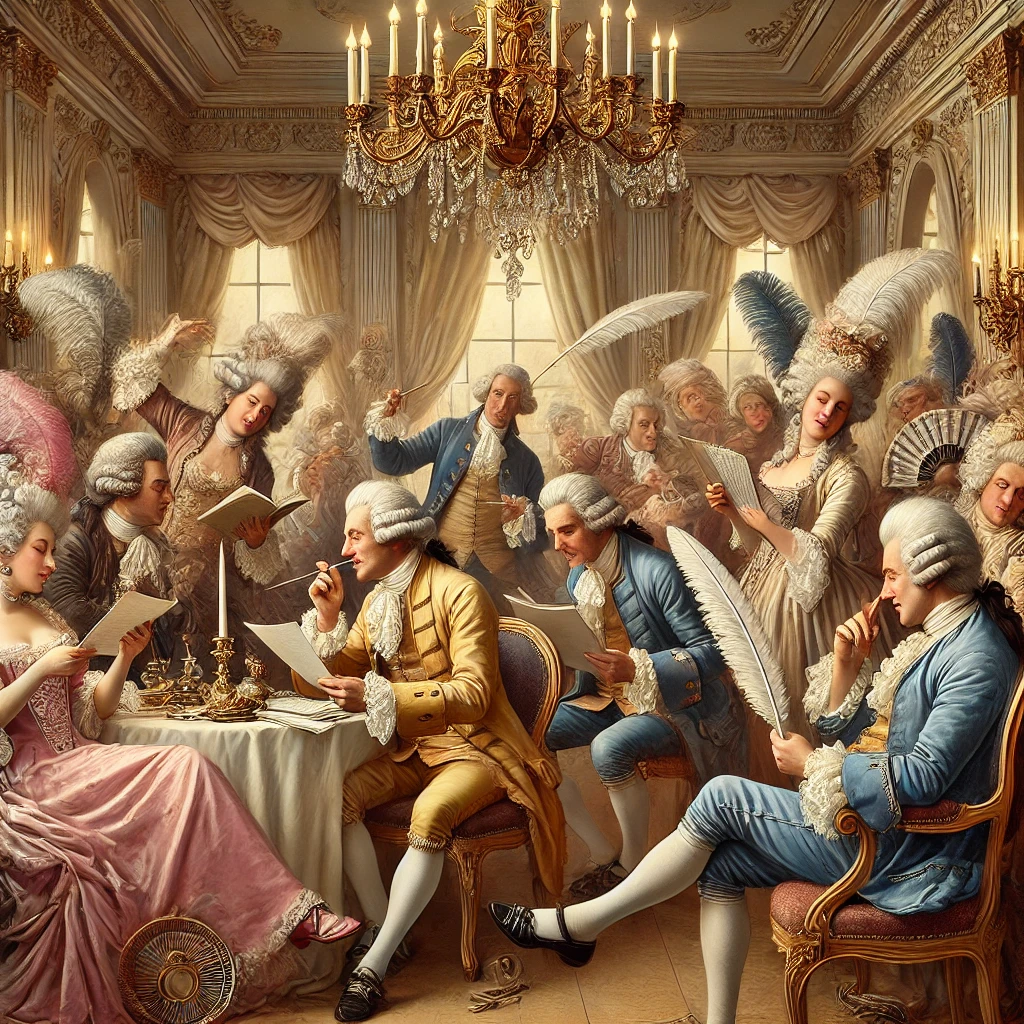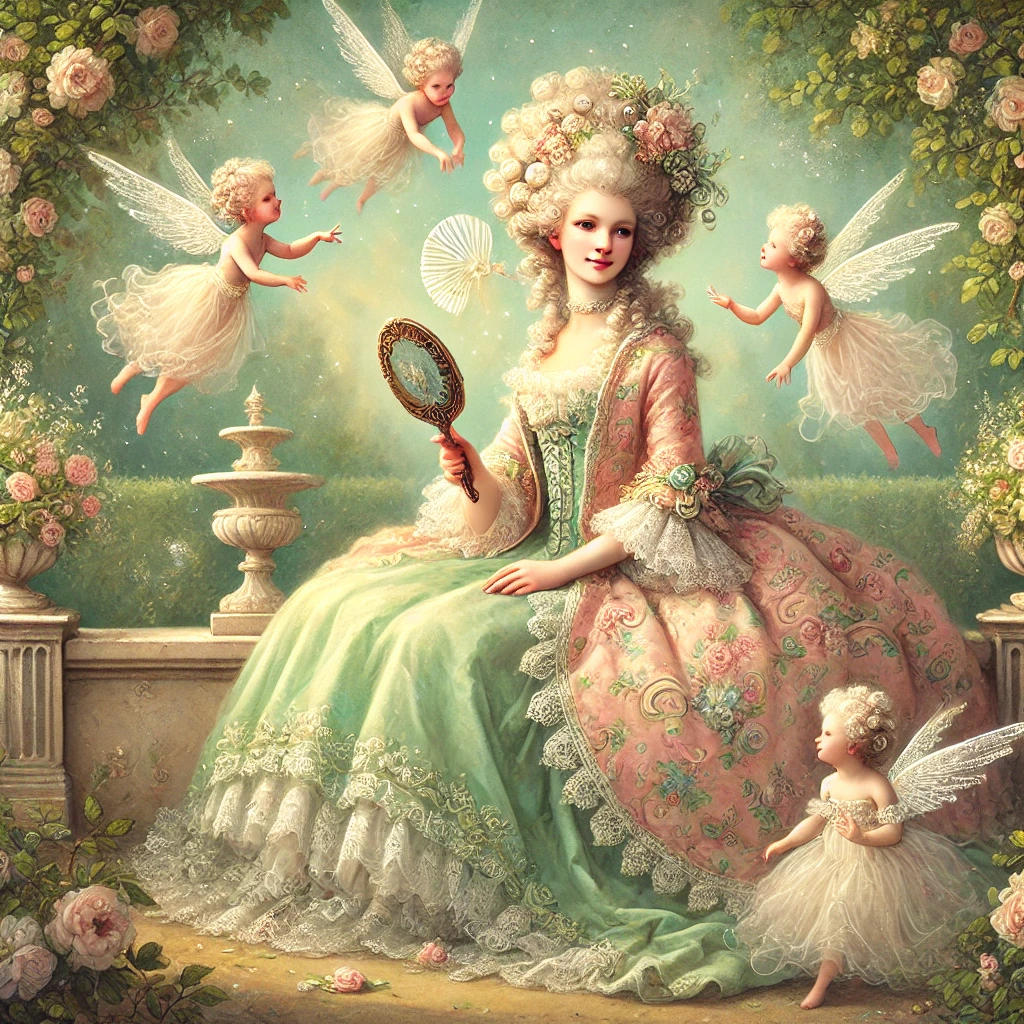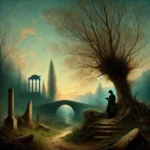By ABS, The Literary Scholar
A.K.A. The One Who Survived the 18th Century’s Intellectual Sword Fights (With Style)
Before We Begin, Let’s Powder Our Wigs
Welcome to the Neoclassical Age, a literary period where every poet wore a cravat, every critic owned a dagger (disguised as a quill), and every woman carried both a fan and a moral scandal.
This was the era where men wrote 800-line poems to call each other dull, and readers cheered from the sidelines like it was WWE: Literary Edition.
It was the 18th century, darling—when poetry didn’t whisper, it bit.
When satire wasn’t a genre, it was a blood sport.
The Hangover After Milton
After Milton’s thunderous fall-of-man epic (Paradise Lost), the literary world experienced a brief intellectual hangover. Everyone had feelings, philosophy, and a faint headache from all that blank verse.
But then came a new breed of writers.
These weren’t your moonlit melancholics.
These were word assassins.
And their weapons? Mock-epics, satires, epistles, and blistering footnotes.
The Era of Dryden: Sharp Pens and Shadwell Slaps
Let’s begin with John Dryden—the man who practically founded the Neoclassical Age while multitasking as a poet, playwright, and unofficial roaster-in-chief.
He brought rhyme royal back in style and rebranded poetry into politics.
His most famous smackdown?
Mac Flecknoe—a poetic eulogy for bad poets, thinly disguised as a full-frontal literary insult to Thomas Shadwell.
“Shadwell alone my perfect image bears…”
Translation: He’s the king of dullness. Long may he bore.
And when Shadwell tried clapping back?
Dryden just polished his verse and turned up the satire.
Then came Absalom and Achitophel—a political allegory so pointed it probably required gloves to hold. He turned royal scandal into a Biblical drama starring:
Charles II (as David)
Monmouth (as Absalom)
And anyone else foolish enough to cross his political line
And yet, he still found time to write All for Love, proving even the sharpest cynics occasionally paused to cry at a tragedy.
Pope: The Pocket-Sized Genius with a Punch
Then enters Alexander Pope—tiny in stature, twisted in spine, but mighty in rhyming couplets and pointed insults.
He took heroic couplets and turned them into literary scalpels.
Where Dryden struck, Pope flayed.
Despite chronic illness and a life that could easily have turned tragic, Pope became the golden boy of satiric verse.
His pièce de résistance?
The Rape of the Lock
A mock-epic about a man cutting a lady’s hair at a party.
Yes, really. And it was glorious.
“What dire offence from amorous causes springs, / What mighty contests rise from trivial things!”
It had:
Sylphs
Brocade
Over-the-top poetic flair
And more sarcasm than a Regency ballroom full of Jane Austen characters
Pope was also a savage moral critic. In The Dunciad, he:
Attacked dull poets
Burned mediocre thinkers
Named names
Mocked society
Dragged Queen Anne (“Who sometimes counsel takes, and sometimes tea”)
And did it all with rhyme so tight, it left no room to breathe
He was polite society’s worst nightmare: a witty man with a pen and no filter.
Swift: The Gentleman Who Called You Stupid in 7 Languages
Jonathan Swift was not here to amuse you.
He was here to expose your nonsense and call it literature.
If Pope was the snarky poet, Swift was the intellectual terrorist (in the best way).
His Battle of the Books turned a scholarly debate about ancients vs. moderns into a metaphor involving:
A bee
A spider
And a whole lot of arrogance
In short:
Bee = classical authors, gathering sweetness from many flowers
Spider = modern authors, spinning nonsense from themselves
“The moderns spin, but the ancients fly.”
Then came Gulliver’s Travels—which people keep misreading as a children’s book.
No, no.
This was not cute adventure time.
This was Swift saying: “Your politics are absurd, your scientists are frauds, and your culture is shallow.”
Lilliput? Petty politicians.
Brobdingnag? Moral perspective.
Laputa? Useless intellectuals.
Houyhnhnms? The horror of rational beasts vs. emotional humans.
You think 1984 was dystopian?
Swift already threw shade harder—in verse, in prose, and possibly in his sleep.
Dr. Johnson: The Man, the Dictionary, the Sass
Next up, Samuel Johnson—not just a writer, but a walking literary institution with the gruff charm of a Victorian bulldog.
Imagine someone who:
Coined wit like Shakespeare dropped metaphors
Ate critics for breakfast
And casually compiled the first major English dictionary
Yes, while others were writing odes to clouds and flirt-fencing in verse, Johnson said,
“Enough. Someone has to organize this chaotic language.”
So he sat down and wrote the Dictionary of the English Language (1755).
By hand.
With definitions like this:
Lexicographer: A writer of dictionaries; a harmless drudge.
Translation: I did it, and yes, I know it sucked.
But Johnson wasn’t just a word-wrangler.
He wrote:
Rasselas (a philosophical tale dressed in exotic robes)
The Lives of the Poets (which is what you’d get if a resume roast met a eulogy)
Essays that sound like a modern blogger trapped in the 18th century
He was friends with Boswell, who wrote Johnson’s biography so thoroughly, the man’s coffee habits are recorded.
In short:
Dr. Johnson was Google before Google.
And snarkier.
Meanwhile, in the Prose Corner…
The Neoclassical Age wasn’t just poets with powdered wigs—it was a prose party, and everyone who was anyone brought a sharp tongue and a sharper pen.
Let’s name-drop with flair:
Francis Bacon: The Father of Essays (and Quotable Life Advice)
Long before Twitter’s “inspirational quotes” accounts, there was Bacon, serving wisdom in aphoristic spoonfuls:
“Reading maketh a full man; conference a ready man; and writing an exact man.”
“Revenge is a kind of wild justice.”
Each of his essays reads like a life manual handed down by a philosopher who would absolutely judge your small talk.
You might call them short. Bacon called them essential life architecture.
John Donne: When Metaphysics Met Pick-Up Lines
Though chronologically earlier, Donne’s metaphysical genius spilled over into the intellectual energy of this age.
He made poetry think and seduce at the same time.
“Come live with me and be my love, and we will some new pleasures prove…”
“The flea sucked me first, and now sucks thee…”
Yes, he turned a flea into a metaphor for premarital intimacy.
And somehow, it worked.
Donne fused science, theology, sex, and philosophy into poems that made you:
Think
Blush
Google at least three references
His legacy haunted the Neoclassical writers, who envied his fusion of brain and bravado.
Epistles, Elegies, and Epic Pettiness
Back in poetic land, the Neoclassicists were still at it—praising each other with sharp edges.
They exchanged epistles—letter-poems written in verse that often sounded polite but contained enough barbed remarks to start a literary feud.
Pope’s Epistle to Dr. Arbuthnot is basically the classiest “I’m sick of all of you” ever published.
Even Dunciad read like a burn book with footnotes. It insulted:
Critics
Grub Street hacks
Women of fashion
Opera singers
And, at one point, anyone who confused beauty with worth
Women, Words, and Witty Retorts
And let’s not forget the ladies—because while the men were busy calling each other dunces, women were writing, reading, and occasionally being scandalous with stunning composure.
The Neoclassical era gave rise to salons, where educated women hosted discussions on art, letters, and occasionally, which wig style best matched your scandal.
Many of Pope’s satirical targets were women—often not for being unintelligent, but for being too fashionable, too clever, or too aware of their power.
“And now, unveiled, the toilet stands displayed,
Each silver vase in mystic order laid…”
(Rape of the Lock)
Let us not forget the line:
“Not louder shrieks to pitying heaven are cast / When husbands or when lap-dogs breathe their last.”
You see what he did there.
And the Novels Were Coming…
Though this age is mostly famed for poetry and essays, it also quietly planted the seeds of modern prose fiction.
Defoe’s Robinson Crusoe (1719): an adventure story, survival manual, and possibly the longest introvert diary ever.
Swift’s Gulliver’s Travels: not just fantasy, but political satire in costume
Samuel Richardson’s Pamela and Clarissa: letters, virtue, and more letters
Henry Fielding’s Tom Jones: the first real comic novel, full of mischief and insight
By the late 18th century, prose wasn’t just catching up—it was moving in and hanging tapestries.
Moral of the Scroll
The Neoclassical Age was:
Overdressed
Overeducated
Overly fond of footnotes
And absolutely glorious
It gave us:
The mock-epic
The rhyme-fight
The essays with bite
The dictionary with shade
And a literary battlefield where everyone was clever, and no one was safe
This wasn’t an age of subtle metaphors or pastoral sheep.
This was quill-to-quill combat, and every word was wielded like a dagger dipped in wit.
ABS dusts chalk from the page, adjusts an imaginary periwig, and strolls off into a cloud of satire—smiling wryly as the sound of rhyming couplets echoes in the background.
Where reason ruled and rhyme bit deep, the pen proved sharper than the sword.
Signed,
ABS, The Literary Scholar
By ABS, The Literary Scholar
A.K.A. The One Who Took a Shortcut Through the Graveyard to Get to the Heart
Share this post / Spread the witty word / Let the echo wander / Bookmark the brilliance



